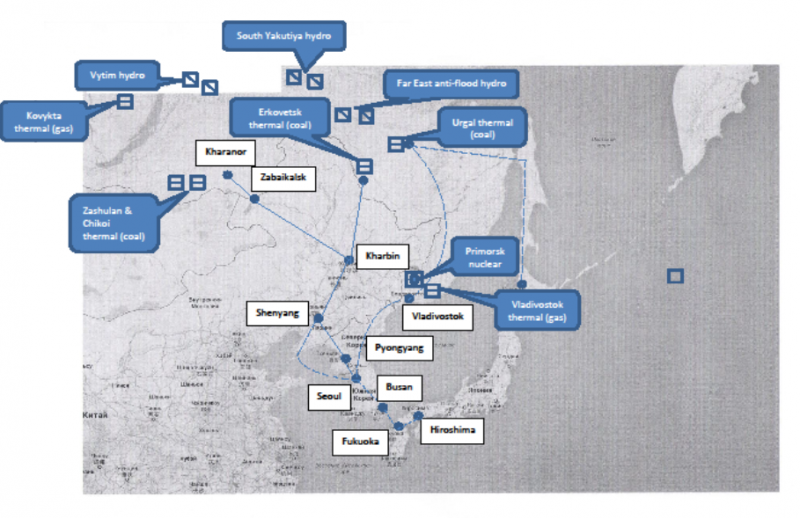
Researchers from the Skoltech Center for Energy Systems and the Korea Energy Economics Institute (KEEI) study the potential benefits of an Asian Energy Supergrid
On July 24, 2014 the Skoltech Center for Energy Systems in collaboration with the En+ group of companies and the South Korean KEPCO corporation held an international seminar at the Skolkovo Institute of Science and Technology. The meeting started with a presentation of results of joint research by the Skoltech Center for Energy Systems and the Korea Energy Economics Institute (KEEI) conducted within a project of the Asian Energy Supergrid. The project considers the connection of unified energy system of Russia with Northeast Asian countries through a flexible connection of eastern Russia with the power systems of China, Korean Peninsula and, in perspective, Japan.
The participation of representatives of the Ministry of Foreign Affairs of Russian Federation put the Supergrid project in a broader international context. Dmitry Kulkin, First Secretary of Korean Division at First Asian Department of the Russian Ministry of Foreign Affairs, emphasized that the project is one of the most desirable areas of cooperation with Korean Peninsula countries.
The practical tone of the discussion was set by representatives of energy companies in Russia and Northeast Asia who are interested in transferring scientific Skoltech research to practice. Support for the project was expressed by the Director of Infrastructure Projects Department at Mitsui and Co. Moscow LLC Mr. Sugi Konosuke, En + Group Project “East” Director Alexander Sergeev, JSC “Evrosibenergo” Project Manager Vladimir Kiselev and by Rosatom Development Director Anna Kudryavtseva.
“The concept of the energy bridge between Korea and Japan is very interesting from the Japanese side as well, and there are two reasons for that. One is the practical aspect, which is transmission line system in Japan. Japan consists of four islands, and even until now it is not wholly liberalized. There are 9 companies that have monopolies in different regions. So practically it might be difficult to transmit power from the North to the Southern parts of Japan. Moreover there is an issue of difference in frequency between East and West .
The second aspect is political. Unfortunately current relations between Korea and Japan are not very constructive, but these two countries are highly dependent on each other. The establishment of economic cooperation, including the implementation of such projects, could strengthen political relations between our countries.”
Sugi Konosuke, Infrastructure Projects Director at Mitsui and Co. Moscow LLC
Suggestions for further project developments were made by the Deputy Director of the Russian Energy Agency under the Ministry of Energy Igor Kozhukhovsky, Deputy Chairman of the Committee for Energy Strategy and Energy Industry Development Vladimir Dzhangirov, Center for Strategic Studies President Advisor Dmitry Sanatov and Head of Regional Projects at Skolkovo Fund Ivan Ognev. Particularly, Vladimir Dzhangirov made a proposal to consider the establishment of Asian Energy Charter, which would enable to create the legal framework for international energy cooperation in the Asian region.
The research at Skoltech is carried out within the memorandum signed by Skoltech, En+ Group, and South Korea’s KEPCO during the visit of the Russian President to Korea in November 2013 for the preparation of proposals by oncoming visit of the President of the Republic of Korea.
The objective of the research is to develop options for electricity export from Russia to the Northeast Asian countries and recommendations for optimal routes of supplies. As possible alternative supplies to South Korea considered were three different options – undersea cable from Dalian (China) and two transit power lines from Russian Siberia and Far East through the territory of North Korea to Seoul (see the map).
The project’s profitability might be substantially increased with participation of Japan, with supplies by northern (undersea cable from Sakhalin) and the southern (undersea cable from RK through Kyushu to Honshu islands) routes.
Final results of this study will be presented to the Government of the Russian Federation at APEC Summit in November 2014.
Contact information:
Skoltech Communications
+7 (495) 280 14 81
